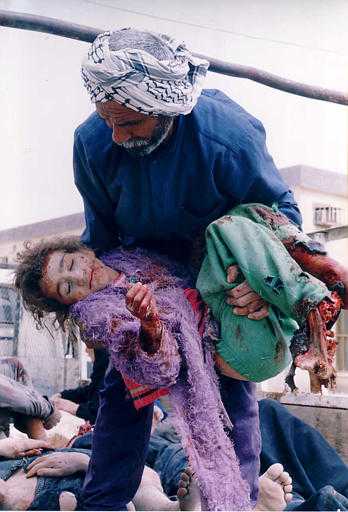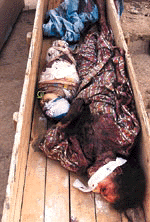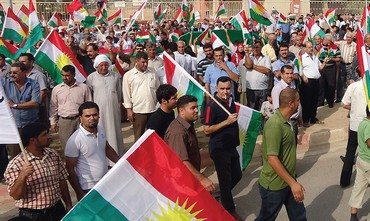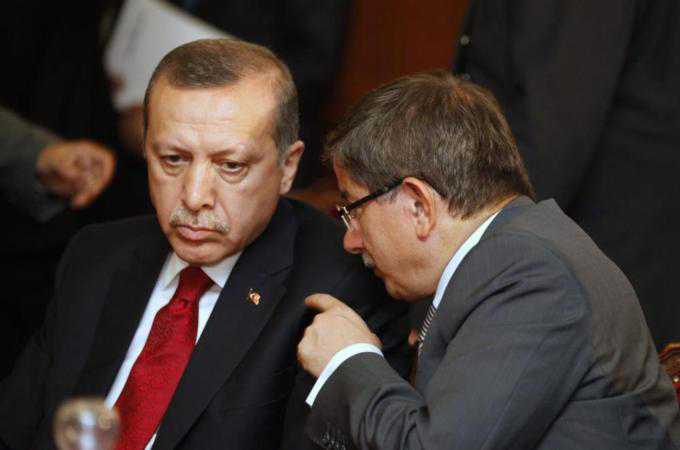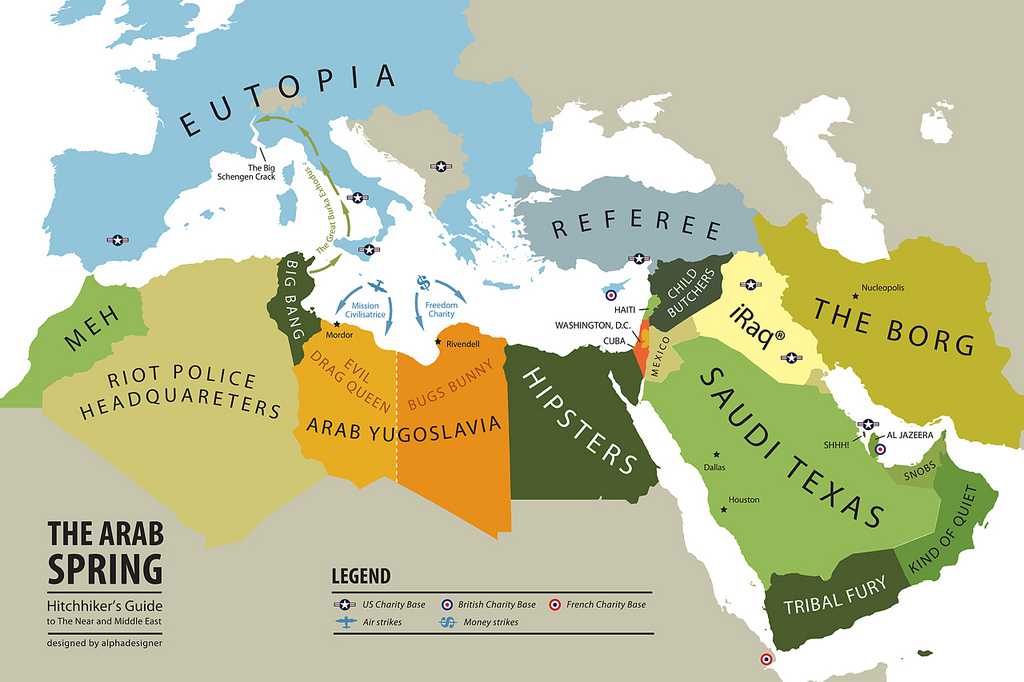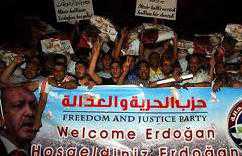AUTHOR: James Ryan was born and raised in New York City. A graduate of the United States Military Academy at West Point, he holds advanced degrees in economics (MBA) and English literature (MA), a Master of Fine Arts degree (MFA) in writing from Columbia University, and a Ph.D. in literature. He writes and has published poetry, fiction, literary criticism, and political commentary. He taught creative writing at Columbia University in New York and literature at Kadır Has University in Istanbul, Turkey.

Also see the following websites:
James Ryan: The Official Website http://jamesryanbooks.com/
AMERICA’S WAR-HORSE HARLOTS
Stoop, Romans, Stoop,
And let us bathe our hands in Caesar’s blood
Up to the elbows, and besmear our swords;
Then walk we forth, even to the market-place,
And waving our red weapons o’er our heads,
Let’s all cry, “Peace, freedom, and liberty !”
Julius Caesar, Act III, i
Yes, ALLAH’S BOYS will do the sneaky, dirty work, especially on their brother Muslims, very democratic, these boys. After all, ALLAH’S BOYS are CIA creatures. Remember the “our boys did it!” exclamation from the 1980 CIA-induced Turkish military coup? ALLAH’S BOYS are the bad seed Islamo-fascist children of that catastrophe. True masters of disaster who have raped their own country through privatization, just like the juntas did in South America. Inside Turkey environmental disaster prevails. Forests are destroyed, rivers contaminated by stupid self-serving plans. “No river shall run in vain,” says the head ALLAH’S BOY, meaning that all running waterways will somehow, somewhere generate electricity. Forget nature. Turkey’s once thriving agriculture is nearly barren, its seed imported from Israel. The uneducated voting base of ALLAH’S BOYS remains bedazzled and uneducated. With no economic plan for the future, ALLAH’S BOYS encourages them to have at least 3-5 children. It needs the votes. The once proud Turkish Army has been purged, its senior ranks now stuffed with government toadies. The recent military disasters related to America’s drone-fiascos attest to its incompetence; it has yet to explain or otherwise account for the grievous loss of Turkish lives. Hundreds, thousands—one loses count—of democratic dissenters are in jails throughout the land. Everyone is wire-tapped. Public-space cameras abound. Fascist style police control the streets. Every public assembly of citizens turns into a police riot. Democratic constitutional protections no longer exist. The judicial system is thoroughly politicized. Art, music, cinema, theater, writing, all is subject to censure or fine or destruction. And political thievery an institutional art form.
All this and more is what America’s favorite adopted sons, ALLAH’S BOYS, have brought to their own country. ALLAH’S BOYS knows how to do two things very well, destroy and make money. And America truly loves what this motley crew has done for now the US is paying them big war-bucks for a new, disastrous adventure in the name so-called democracy. Now the Arab world is experiencing democracy a la Turka, as prepared in America, as delivered by ALLAH’S BOYS and their CIA handlers.
It all happened so quickly, like love at first sight. Only two years ago the capo of ALLAH’S BOYS wondered out loud about “what business does NATO have in Libya?” This was shortly after he had accepted the Muammar Gaddafi Human Rights Award. But then a breeze blew past his bristled upper lip bringing the smell of cordite, carrion, and chaos, followed by a little bird carrying a wad of large denomination American dollars. Twitter. Twitter. And ALLAH’S BOYS suddenly learned how to make money from war. And suddenly Muammar became a big-time loser and the Turks were bombing Libya along with the rest of NATO. And for the last 15 months ALLAH’S BOYS have been provoking Syria. In collusion with the CIA, automatic weapons, tanks, rockets, all the toys of war, have been given to the so-called Friends of Syria mercenaries. These unsavory characters bear a painful resemblance to the US-financed gangsters who toppled Saddam’s statue in Firdos Square in 2003 and, to Hillary Clinton’s great glee, sodomized and disemboweled Gaddafi last year. And now the murderers from the infamous Blackwater gang are in southern Turkey. Such is the way ALLAH’S BOYS (and the CIA) operate. Money. Money. Money.
But now they have provoked Syria too much. A Turkish jet, violating Syrian air space, coming in low and fast, got dropped into the sea. Remember the Gulf of Tonkin fiasco? The concocted incident that “validated” America’s disastrous war in Viet Nam? This is the same lying subterfuge played on the world stage, courtesy of the CIA and America’s puppet show provided by ALLAH’S BOYS. And now ALLAH’S BOYS cry murder most foul their own self-provoked crisis. And of course their American handlers echo the outrage. Make no mistake about this: they, ALLAH’S BOYS and America, are the real murderers of the two downed Turkish pilots. Along with the incompetent military commanders who approved this mission of provocation. But indeed they all found out that, Yes, Syria does indeed have an air defense capability. How stupidly negligent can one be? Ah, but the money is good.
As they used to say about Mexico and America, can be said about Syria: “Poor Syria. So far from God. So close to Turkey.” And to think Bashar Assad, a physician trained in England and president of Syria, and his stylish wife, Esma, British and college-educated, were feted in Ankara not too long ago. His wife dazzled in comparison to the fashion-retard covered wives of ALLAH’S BOYS. Then, Turkey and Syria were on great terms. The border was open. No visas or passports necessary. Trade was booming between Hatay in southern Turkey and Syria. But then that same little bird flew in the window at Ankara. And suddenly the room was full of money. And suddenly it became War! War! War! And American war bucks galore filled the Turkish air. And the ever capacious, ever open pockets of the Turkish government became happy pockets indeed.
The Turkish media lackeys bang their pathetic war drums. ALLAH’S BOYS cry wah-wah-wah to NATO, the UN and any other agency who cares to listen. It’s known as the alibi-cover up scam, also known as “protesting too much.” But the BOYS have America’s melodramatic outrage to revel in, and “endless support” according to the hapless American ambassador. So now Turkey can add its bloody hand to the millions of its Muslim “brothers and sisters” killed and displaced in Iraq and Afghanistan. What a bloody bunch! What a collection of phonies! What a dishonorable gang!
There is no honor in war. Just examine the photographs of the destroyed Iraqi children. Where are your children, ALLAH’S BOYS? There surely is no honor in America’s endless, hopeless, murderous wars. And there is nothing but treachery and greed among America’s War-Horse whores, these dogs of war who wave their red weapons over their heads crying “PEACE! FREEDOM! LIBERTY!” when they really mean MONEY! MONEY! MONEY! Killers all.
And all this carnage under the aegis of the Nobel Peace Prize winning American president.
The shame is boundless, the rape obscene.
James Ryan
29 June 2012
PS: See the websites of West Point Graduates Against The War
and Service Academy Graduates Against The War for further details about America’s war crimes and its war criminals.
Joel Grey, CABARETMoney, money, money, money
Money, money, money, money
Money, money, money, money, money
THE CHILDREN OF IRAQ
WAR IS A CRIME! STOP THE WAR CRIMINALS!



